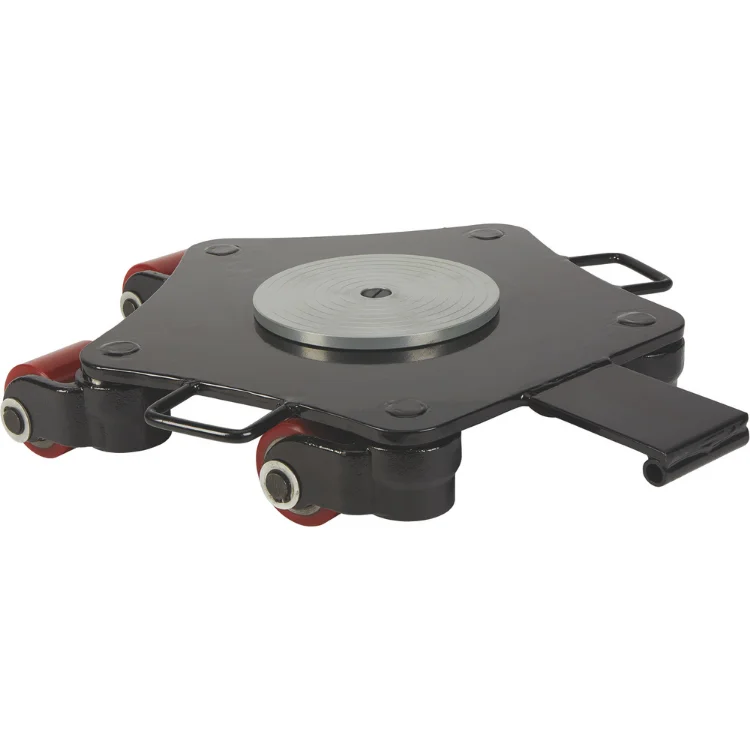shipping container rollers
Understanding Shipping Container Rollers Essential Components for Efficient Logistics
With the rise of global trade and the increasing volume of goods being transported worldwide, shipping containers have become a crucial element in logistics and supply chain management. One vital aspect of managing these containers effectively is the use of shipping container rollers. These specialized rollers play a significant role in the handling, movement, and transportation of shipping containers, ensuring that operations run smoothly and efficiently.
What Are Shipping Container Rollers?
Shipping container rollers, also commonly referred to as container dollies or roller systems, are mechanical devices designed to facilitate the movement of shipping containers in various environments. They are typically made from durable materials like steel or heavy-duty plastic to withstand the rigors of industrial use. These rollers are designed to distribute the weight of the container evenly, allowing for easier movement across different surfaces, including docks, warehouses, and shipping yards.
The Importance of Shipping Container Rollers
1. Enhanced Mobility One of the primary advantages of using shipping container rollers is their ability to enhance mobility. Containers can weigh several tons when fully loaded, making them challenging to move using traditional methods. Rollers enable workers to shift containers with minimal effort, reducing the risk of injury and increasing productivity.
2. Space Optimization Shipping facilities often have limited space, and maneuvering containers can be difficult without the right tools. Rollers allow for precise positioning of containers, enabling tighter stacking and more efficient use of available space. This is especially beneficial in warehouses and busy shipping yards where every square foot matters.
3. Time Efficiency Time is money in the logistics industry, and shipping container rollers contribute to significant time savings. By streamlining the movement process, rollers reduce the time it takes to load, unload, and position containers. This efficiency is crucial for meeting tight deadlines and maintaining smooth supply chain operations.
4. Versatility Shipping container rollers come in various designs and sizes to accommodate different types of containers. Whether it’s a 20-foot, 40-foot, or custom-sized container, there is a roller system suitable for the task. This versatility makes rollers an essential tool in diverse industries, from shipping and receiving to construction and retail.
shipping container rollers

5. Safety Considerations Safety is paramount in any industrial setting, and using rollers can significantly reduce the risk of accidents. Manual handling of heavy containers poses various hazards, including strains and injuries. Rollers minimize the physical exertion required to move containers, thus lowering the likelihood of workplace accidents.
Types of Shipping Container Rollers
There are several types of shipping container rollers, each designed for specific applications
- Manual Rollers These are operated by hand and are ideal for smaller containers or less frequent use. They are simple to use and require no power source, making them versatile for various settings.
- Powered Rollers For heavy-duty operations, powered rollers (often electric or hydraulic) offer a more efficient solution. They can handle larger containers and are typically used in high-volume environments.
- Custom Rollers Some businesses may require custom-built rollers tailored to unique specifications or container designs. This option ensures that specific operational needs are met while still maintaining efficiency.
Conclusion
Shipping container rollers are indispensable tools in the logistics and transportation industry. Their ability to enhance mobility, optimize space, save time, and improve safety contributes to more efficient operations and better service delivery. As global trade continues to expand, the importance of innovations like shipping container rollers will grow, helping businesses navigate the challenges of transporting goods more effectively. Investing in high-quality rollers is not just a matter of convenience; it is a strategic decision that can lead to improved operational performance and competitive advantage in the marketplace.
-
Unlock Seamless Relocation with Our Heavy Equipment Moving ExpertiseNewsJun.06,2025
-
Unleash Unrivaled Flexibility with Our Adjustable Gantry CraneNewsJun.06,2025
-
Unleash Heavy-Duty Efficiency with Our Industrial Gantry Crane SolutionsNewsJun.06,2025
-
Revolutionize Steel Handling with Our Magnetic Lifter RangeNewsJun.06,2025
-
Master Equipment Mobility with Premium Machinery Mover SolutionsNewsJun.06,2025
-
Elevate Your Material Handling with Magnetic Lifter TechnologyNewsJun.06,2025
-
YS Permanent Lifting Magnets: The Smarter Way to Handle SteelNewsMay.22,2025
